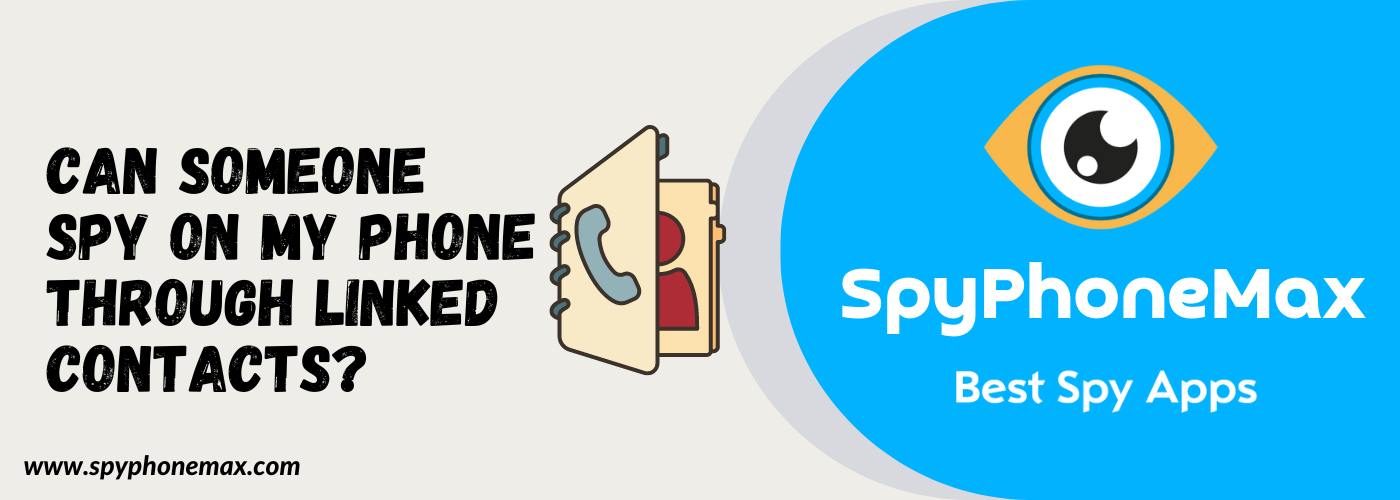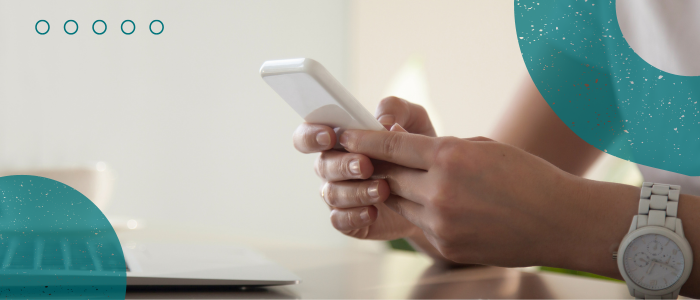In an age where our lives are virtually tied to smartphones, privacy concerns become all the more real. With a device that provides convenience and connectivity, it’s worth noting that someone—be it the government, brands, or hackers—might potentially be spying on you. This reality brings us to a crucial question, “Can someone spy on my phone through linked contacts?” 📲🔍
In this post, we’ll explore this query, delve into possible vulnerabilities, and provide insights into protecting your privacy. Let’s decode the complex world of digital security and ensure your peace of mind in the interconnected landscape of today.
While direct spying through linked contacts is difficult, there are potential indirect paths that could compromise your privacy. Ensuring your digital security involves understanding phone linking, recognizing potential breaches, and implementing safeguards like regular updates, strong passwords, two-factor authentication, and careful app permissions management.
- ✅ While spying directly through linked contacts on your phone is difficult due to robust security measures, indirect paths can compromise your privacy, like malware-infected contacts or insecure third-party apps. 🕵️♂️🕸️
- ✅ Linking your phone to other devices or platforms simplifies and streamlines your digital experience, allowing data synchronization, backup and restoration, increased efficiency, and ease of sharing across devices. 📲🔄
- ✅ Indicators of unwarranted linking include unusual battery drain, slow performance, strange phone behavior, unfamiliar apps, and unexpected data usage. However, these signs could also indicate other issues. 🔍🔋
- ✅ Preventative measures against phone mirroring include keeping software up-to-date, using strong, unique passwords, enabling two-factor authentication, managing app permissions wisely, using trusted apps and software, regularly reviewing accounts, installing antivirus software, and avoiding public Wi-Fi. 🛡️🔒
- ✅ Understanding how phone linking works, detecting privacy breaches, and implementing safeguards are key to maintaining digital security. 🏰🔐
- ✅ Regular software updates, strong passwords, two-factor authentication, and effective app permissions management form the cornerstone of a secure digital presence. 🔄🔑🚀
Can Someone Spy On My Phone Through Linked Contacts? 🕵️♂️🔎
When it comes to ‘linked contacts’, imagine them as invisible threads 🧵 connecting your contacts list across various platforms and apps like Google, iCloud, or your favorite social media. These threads ensure your contact list stays consistent and within reach, no matter where you are or what device you’re using. 📱💻
But, does this digital networking raise a big question: can these ‘threads’ act as a pathway for someone to spy on your phone? 🕸️🕷️
💡 The answer, in a nutshell, is not as straightforward as it might seem.
The concept of someone spying on your phone through your contacts requires an intricate dance of technical access and prowess that is hard to achieve. The leading platforms that store your linked contacts are like fortresses 🏰, boasting robust security measures to keep unauthorized access at bay.
Yet, it’s important to remember that while the fortress is strong, there might be indirect ways for a cunning intruder to sneak in. Here are some scenarios where your privacy could be indirectly compromised:
- Malware Infected Contacts: If one of your contacts falls victim to a malware or phishing scam, and you interact with compromised content they unknowingly share. 🐛
- Third-party App Weaknesses: If an app you’ve linked your contacts with isn’t as secure as it should be, it could leave your data exposed. 🚪🔓
To wrap it up, while a direct spy-on-your-phone-via-linked-contacts scenario is highly unlikely, there exist indirect paths that could lead to your privacy being invaded. The silver lining? Awareness is your best defense. Recognizing these potential vulnerabilities and taking proactive measures can significantly ramp up your data security. 🛡️🔐
What Does Linking Your Phone Do? 📲🔗
Linking your phone is a common practice in our interconnected digital age. This process essentially bridges your phone to other devices or platforms, harmonizing your data across multiple spheres. Let’s encapsulate the key functions and benefits:
- Data Synchronization: Links your data (e.g., emails, contacts, calendar events, browser tabs) across devices for seamless access and consistency. 🔄
- Backup and Restore: Regularly back up your data to cloud services like Google Drive or iCloud, ensuring your data’s safety and ease of restoration. ☁️🔄
- Multitasking & Accessibility: Increases efficiency and accessibility by enabling control of linked devices like smartwatches or smart home systems directly from your phone. 🤹♂️
- Sharing Across Devices: Facilitates effortless sharing of files or links between linked devices using features like Apple’s AirDrop or Google’s Nearby Share. 🔁
Linking your phone simplifies and streamlines your digital experience, creating a personal, interconnected ecosystem for you to navigate. 🌐🔗📱
How Can I Tell If Someone Has Linked My Phone To Theirs? 🕵️♂️🔍
Unwarranted linking of your phone to another can be a privacy concern. If you’re suspicious, there are tell-tale signs you can look for. However, these can be subtle and may require a little tech savviness to detect. Here are key signs to watch out for:
- Unusual Battery Drain: If your phone’s battery is draining faster than usual, it could indicate that unwanted apps or software are running in the background. ⚡🔋
- Slow Performance: Similar to battery drain, if your phone has become noticeably slow, it may be due to unwelcome software taxing your device’s resources. 🐌💻
- Strange Behavior: If your phone starts behaving oddly, such as apps opening by themselves, random shutdowns, or uninitiated calls/messages, it could be a sign of external control. 👻📱
- Unfamiliar Apps: If you notice unfamiliar apps on your device that you didn’t download, it could be a sign that someone has access to your phone. 🕵️♂️📲
- Unexpected Data Usage: A sudden spike in data usage can be a red flag, as unwelcome software could be transmitting data in the background. 📈📡
Remember, these signs aren’t definitive proof that your phone is linked to someone else’s, as they could also be symptoms of other issues such as outdated software, hardware problems, or legitimate apps behaving incorrectly. However, if you notice these signs and are worried, it’s a good idea to seek help from a tech professional. Safety and security should always be your top priority in our digital world. 🌐🔒💡
How To Stop Someone From Mirroring Your Phone? 🚫📲
Prevention is always better than cure, especially when it comes to protecting your digital privacy. If you’re worried about someone mirroring your phone, here are several strategies to help bolster your device’s defenses:
- 1. Keep Your Software Up-to-date: Always update your operating system and apps. Updates often contain crucial security patches that protect your device from vulnerabilities. 🛡️🔄
- 2. Use Strong, Unique Passwords: A strong, unique password is your first line of defense. Avoid common or easily guessed passwords. Consider using a password manager for added security. 🔑💪
- 3. Enable Two-factor Authentication (2FA): 2FA adds an extra layer of security, requiring a second form of verification (such as a fingerprint, facial recognition, or one-time code) to access your accounts. It’s available on most platforms and strongly recommended. 🚀🔐
- 4. Be Careful with App Permissions: Only give permissions that are necessary for an app to function. An app requesting excessive permissions could be a red flag. 🚩📵
- 5. Use Trusted Apps and Software: Only download apps and software from trusted sources like the App Store or Google Play. These platforms vet apps for safety and security. 👍🏼🔒
- 6. Regularly Review Your Accounts: Regularly review your accounts for any suspicious activity. This includes unfamiliar devices connected to your account, unexpected password changes, or unusual data usage. 🧐🕵️♀️
- 7. Install Antivirus Software: Good antivirus software can provide real-time protection against malware and other threats. Make sure to keep it updated! 💻🔮
- 8. Avoid Public Wi-Fi: Public Wi-Fi networks often have weak security, making it easier for hackers to intercept your data. If you must use public Wi-Fi, consider using a VPN for added security. 📶🛡️
By adopting these practices, you can reduce the risk of someone mirroring your phone, thus ensuring a safer and more secure digital environment for yourself. 🌐🔒💪🏼
Conclusion: Securing Your Digital Self 🏰🔒
In our digital era, vigilance and awareness are keys to protecting your privacy. From understanding the intricacies of phone linking to implementing safeguards against phone mirroring, your role in securing your data is crucial.
Always remember, staying updated, using strong passwords, enabling two-factor authentication, and managing app permissions effectively are the cornerstones of your digital fortress.
Navigating the complex realm of technology might seem daunting, but these efforts to preserve your privacy are certainly worthwhile. Stay safe, stay connected, and confidently journey onward in the digital world. 🌐💪🚀




